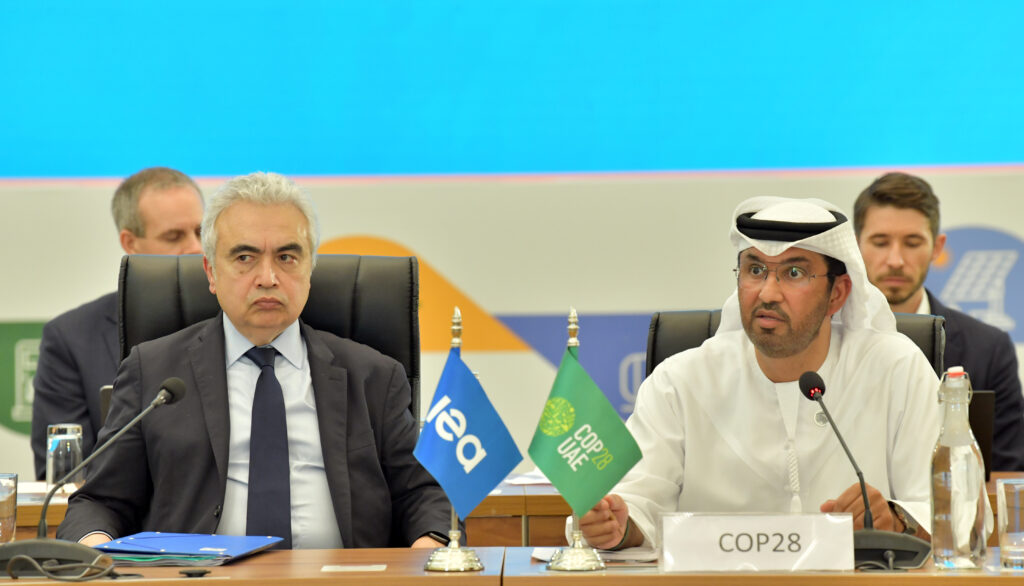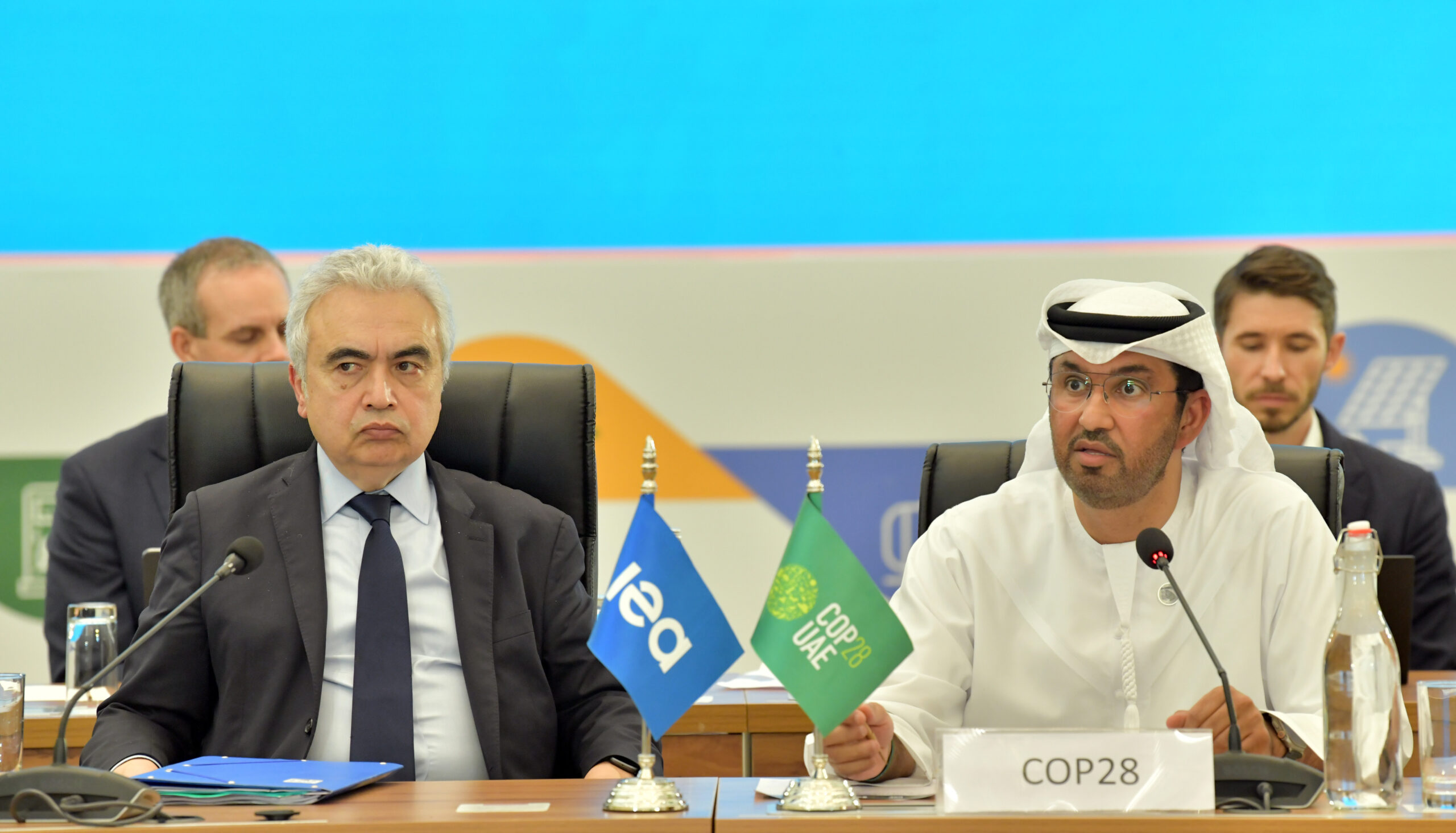COP28 and IEA Convene Global Energy Decision Makers to Accelerate a Just, Orderly Energy Transition

In a significant effort to address the pressing climate crisis and achieve a responsible, logical, and equitable transition in the global energy sector, the COP28 UAE Presidency and the International Energy Agency (IEA) have initiated a series of high-level dialogues leading up to COP28. These dialogues aim to foster consensus on 1.5°C-aligned energy transition pathways and the necessary conditions to achieve them, as well as to build momentum for target energy outcomes at COP28.
The discussions, held in collaboration with the International Renewable Energy Agency (IRENA) and with the support of the United Nations Framework Convention on Climate Change (UNFCCC), bring together key decision-makers from both the public and private sectors in the energy industry. The overarching goal is to develop a comprehensive, global view of the energy system.
Chaired by COP28 President-Designate Dr. Sultan Al Jaber and IEA Executive Director Dr. Fatih Birol, the dialogues aspire to pave the way for specific commitments and calls-to-action at the World Climate Action Summit during COP28.
The inaugural session took place on the sidelines of the 14th Clean Energy Ministerial, held alongside the G20 Energy Transitions Ministerial Meeting in Goa, India. Attendees included delegates from various countries and representatives from the private sector.
Dr. Sultan bin Ahmed Al Jaber, Minister of Industry and Advanced Technology and COP28 President-Designate, emphasized the significance of this initiative, stating, “COP28 represents a milestone opportunity for the world to come together, unite around decisive action, and drive progress towards keeping the goals of the Paris Agreement alive and 1.5°C within reach. This will require a collective effort and so we need everyone at the table – and that includes the energy industry.”
He further explained that achieving a new energy system on a global scale necessitates united action on both the supply and demand sides. The high-level dialogues are unprecedented as they bring together public- and private-sector energy decision-makers under the framework of a COP for the first time. This inclusive approach seeks to redesign the relationship between policymakers, major energy producers, and industrial consumers, making it a key priority of COP28.
IEA Executive Director Dr. Fatih Birol highlighted the comprehensive energy package proposed by the IEA to contribute to the success of COP28. The package includes ambitious targets such as tripling global renewables capacity, doubling energy efficiency progress, reducing emissions from the oil and gas industry, boosting clean energy finance for developing economies, redirecting fossil fuel investments into clean energy, and significantly curbing fossil fuel demand.
Dr. Birol emphasized that the IEA’s Net Zero Emissions by 2050 Scenario serves as the global benchmark for efforts to limit global warming to 1.5°C. Working with the COP28 Presidency on these international dialogues is crucial to drive stronger ambition and implementation, which is urgently needed to combat the climate crisis. He called upon all stakeholders, including oil and gas producers, to set and deliver aggressive emission reduction targets by 2030.
Francesco La Camera, Director-General of IRENA, underscored the urgency of the situation, stating, “Our collective promise was to secure a climate-safe existence for current and future generations. We simply cannot continue with incremental changes.”
La Camera emphasized that there is no time for a gradual evolution of a new energy system over centuries, similar to the fossil fuel-based system. IRENA firmly advocates for a rapid transition to a renewables-based energy system as the most realistic climate solution, calling for a tripling of annual renewable energy additions to limit global warming within 1.5°C.
To achieve this, La Camera stressed the importance of overcoming systemic barriers across infrastructure, policy, and institutions in the coming years. The high-level dialogues serve as a crucial platform for galvanizing momentum towards COP28’s energy objectives and fostering actionable policies and investment decisions based on shared understanding.
The IEA and IRENA will provide essential data and technical analysis to inform discussions, inviting relevant stakeholders to participate. This will include a comprehensive overview of the current global energy landscape and potential pathways, solutions, and actions required to accelerate a just and equitable energy transition.
Simon Steill, Executive Secretary of the United Nations Framework Convention on Climate Change (UNFCCC), expressed hope that these high-level dialogues, convened by the COP28 Presidency and the IEA in collaboration with IRENA and the support of UNFCCC, will act as a catalyst for driving momentum towards a just and inclusive 1.5-degree-aligned energy transition.
Steill highlighted the necessity for specific commitments and actions by all participating parties at COP28, bringing the world closer to the sustainable and climate-resilient future envisioned in the Paris Agreement. As the climate crisis deepens, decisive action from all stakeholders is imperative to secure a better future for humanity and the planet.





